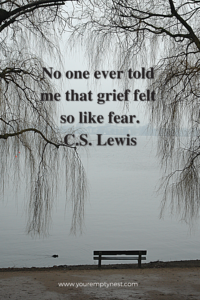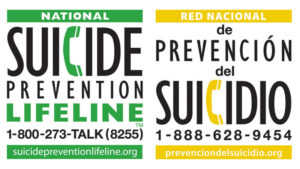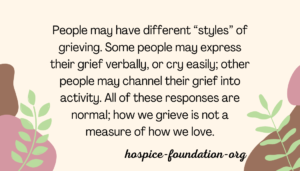What is Grief ?
I have to write this quick because I am on the verge of tears as we speak. My experience with grief comes crashing down on me whenever I am confronted with it.
What is grief? Here is my experience with it.

The first day I was incoherent and in a daze between crying periods. My children were all in different states of grief. This is what happened:
My oldest daughter’s best friend was driving in horrible weather the night before and lost control of the car and crashed. She broke her neck and died at the scene of the accident.
My heart was torn out of my body.
We had found out at church 9 hours later. The girls were like, “Maybe it’s not true”. I knew it was immediately. Because I knew something was up when we walked in and she wasn’t sitting in our family’s “spot”.
My ex-husband was at a loss for what to do for me. I nearly collapsed in the sanctuary and Jim and one of the ushers helped me to walk out into the church’s hall. The entire congregation heard my sobs for I don’t know how long.

Jim went back in the sanctuary to get the children. Jimmy (9) and Chris (5) were confused and didn’t know what was going on. Melissa (10) and Stephanie(12) were not willing to accept it and were mad at me for falling apart. My ex-husband, Jim was trying to keep his whole family together.
What is grief? I had to work the next day.
One of my co-workers who went to church with us called me and walked me through getting ready and driving to work. He called me when my store opened and reminded me to breathe. That reminder was necessary.

I was screaming in my head, “Don’t you know my daughter just died?”, when the clients started coming to the store and needed help with their rental trucks. Of course they didn’t know and I wasn’t going to tell them either.
I don’t need to tell you what a daze I was in for the next couple of weeks. I was not the one to make the arrangements for ‘all the things’.

The kids finally accepted her death and each one had their own way to walk through it.
My youngest stuck by my side like glue and was precious. He was only five. At the viewing, when he saw her (his choice) he declared that she was so pretty. “Couldn’t we just take her home with us?” <— Teaching Moment. They did do a wonderful job with her.
“My sister died”.

To this day when he refers to her, he says that his sister died. That is how close they were. Because a couple of months earlier while we were on vacation, she grabbed him off of a train track before he got hit. The train was moving slow but nonetheless, she most likely saved his life.
So…These last couple of years with Covid-19 and so many reported deaths, have been pretty hard to process. With the massacre and destruction In Ukraine happening, I’ve been crying and tears have been in my eyes for weeks. Even Now. With this series of mass shootings now, the senseless loss of life. WOW. How do we process this? People want to play the blame game. They are just grieving.

Knowing the stages people go through while grieving does help. It helped me. Strange thing, but they actually were almost exactly right.
What is grief? Grief is a reaction to loss.
Years ago a wonderful lady wrote a book about death and the stages grieving people go through. Mrs.Kübler-Ross referred to them as the “five stages of death.” This was because she was working with terminally ill patients. And these were the common emotions they had about their own dying process.
Years after her first book, Kübler-Ross extended her model to include other kinds of loss. The five stages of death became the five stages of grief.
In her 1969 book, “On Death and Dying,” Kübler-Ross shared the five most common emotional reactions to loss:
-
first, denial
-
then anger
-
and bargaining.
-
depression is next on the list,
-
and finally acceptance.
I had read that book before Sabrina’s death and again when I went to nursing school 6 years later. During my nursing career, I had the honor of helping multiple patients to pass on with peace, but my forte’ was helping the families who are left behind.
What is grief? The feelings of denial.
I’ve seen it at almost every death I’ve witnessed, whether the death was expected or not. “Please don’t let it be true.” For family members or friends that are not local and have not been there during the chaos, this stage can be much longer. I would love to hear your experience with denial.

What is grief? Anger.
This stage was mixed with confusion for me. My anger was such a strange feeling for me. I was angry at Sabie’s parents for ridiculous reasons. I was angry with people walking down the street just because they were going along with day to day business. My anger was irrational. I even was angry with other members of my family for not being in the same stage of grief with me.
What is grief? Bargaining.
Bargaining is most often done in your mind.
“Please God, if you will let _____ live, I will be a good person”.

“When we are in pain, it’s sometimes hard to accept that there’s nothing we can do to change things. Bargaining is when we start to make deals with ourselves, or perhaps with God if you’re religious. We want to believe that if we act in particular ways we will feel better. It’s also common to ask yourself a lot of ‘what if’ questions. We are wishing we could go back and change things in the hope things could have turned out differently.” Cruie.org

What is Grief? Depression is the next stage on the list.
Although the stages of grief don’t always come in this order. This is the one stage that can last a whole life time for some. I am on antidepressants and have been for 20+ years. I thank God Almighty for those medications because without them, well, let’s not think about how bad it would be.

Let me also say, that my depression is not solely related to that incident. Depression is hereditary and it runs in my family. An acute episode of depression can trigger chronic depression though. I can say for sure that it was not Empty Nest Syndrome. I was only 30 at the time.

Depression is dangerous and folks that have been going through the stages of grief should be kept on the radar. The idea of suicide is more common than you may think. If you have ideas of suicide or know someone who is contemplating suicide, there is help 24/7. The suicide prevention lifeline number is: 1-800-273-8255 for English, & 1-888-628-9454 for Spanish.

Acute depression is sometimes referred to as situational depression. There is no defined timetable for depression so it can be frustrating for family members who have moved on to the next phase or have not gotten to that phase yet.
It is understandable how a family can fall completely apart when one of them dies. Divorce is fairly common. And especially when it is a child, or baby, born or unborn that dies. If it is a miscarriage or still birth, the mother still has to go through post-partum depression which is a hormonal induced depression. Then add the stages of grief on top of that. Some fathers cannot process this and are experiencing their own grief. And they do not understand.

What is grief? The final stage of grief is acceptance.
It may take years for acceptance. Gradually most people find that the pain fades, and it is possible to accept what has happened. We may never ‘get over’ the death of someone precious, but we can learn to live and breathe again. I am still struggling with it.
Grief is a reaction to loss.
· The way we experience grief is very individual; we each grieve in our own way.
· There are no concrete “stages” to grief—grief is as individual as a fingerprint or a snowflake.
· People may have different “styles” of grieving. Some people may express their grief verbally, or cry easily; other people may channel their grief into activity. All of these responses are normal; how we grieve is not a measure of how we love.
· There is no timetable to grief. Over time the pain lessens, and we return to similar—sometimes better–levels of functioning.
What grief is not:
- Grief is not predictable,
- grief is not shameful,
- and grief is not the end.
- Above all, grief is not the same for everyone.
Grief is a very long process. It is very complex and affects almost every aspect of your life while you are being drowned in it.
You may ask what I did to recover from grief. Firstly, I am not or will ever be over the grief. I have just learned to live anyway. Every year at her birthday I think of her. Although I do not go to her grave every year anymore.
I know what day she died on, which was right before Thanksgiving (Nov.10) and yes, I am fully aware of it during the holidays. Every year. You may be surprised that it has been almost 30 years since she died.

About the grave –
Go to the grave if you want to. Lay on the grave if you want to. Talk to your loved one if you want to. Cry, weep, and scream if you want to. Take flowers or a gift if you want to. The key words are “If you want to”. There are no rules.
My offering –
· Do not forget your self-care, a close friend’s attention is good.
· Keep busy. If you have children, let them keep you busy. Don’t shut them out, and be available to talk with them about it.
· Go to work through it if you have to and if you can emotionally handle it. It actually did help me keep moving.
· Above all, know that you will process it in your own way. And it’s OK. I have sense learned that journaling is a wonderful way to work through devastating times. I have a journaling guide for you and when you enter your information in for the guide, I will send to you the matching journal.

My closing words are a benediction from the Old Testament of the Bible.
Numbers 6:24-26 “May the Lord bless you and keep you. May the Lord show you His kindness and have mercy on you. May the Lord watch over you and give you peace.”



Recent Comments